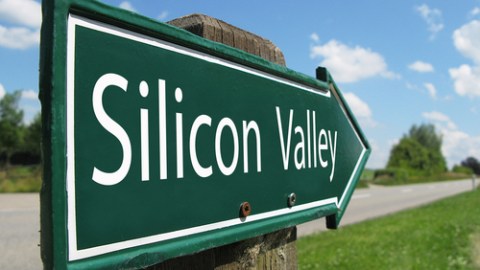Black In America Series Says Race Matters In Silicon Valley

I don’t usually watch the Black In America series, but I will tonight because one of the entrepreneurs in The New Promised Land- Silicon Valley episode is Angela Benton, a dynamic woman from the East Coast who used to pay me to write for one of her websites a little over a year ago. As Benton points out early in the show, “for whatever reason, African-Americans tend to be consumers of technology and not really creators of technology.” She is looking to change that with the NewMeAccelerator, an immersive residential tech startup accelerator that focuses on helping minority business onwers navigate the vagaries of launching a technology startup.
The story of how Jeff Bezos, founder of Amazon, decided to open an internet business came to mind after doing a little reading about the experiences of the participants in this Black In America special.
“The wake up call was finding this startling statistic that web usage in the spring of 1994 was growing at 2,300 percent a year. You know, things just don’t grow that fast. It’s highly unusual, and that started me about thinking, ‘What kind of business plan might make sense in the context of that growth?’”
Jeff Bezos Interview for the Academy of Achievement
Even though I live in Atlanta, there is only one person among my circle of friends who has recently launched a technology startup that is focused more on harnessing the power of a trend than selling a specific product, the way Bezos did. This is partly because my circle of friends are all approaching 50, and partly because a disproportionate amount of the entrepreneurial energy in the African American community in Atlanta gravitates towards starting ventures oriented towards the music industry.
There is no entourage when you are pitching a technology startup. No glamour. No perks. Curtiss Pope, CEO of AisleFinder, puts it this way:
When I created AisleFinder the hardest part was finding data. There was none. I found out that people that tried what we were doing in the past, but gave up because this was the “hardest” part. Persistence helped us get where we are.
For minority startups, we can’t get where we want to go with what we got. Not yet. But I believe we can get there, by focusing on the following:
Of all the things I want to leave you with, it’s these words:
Just be better.
How black entrepreneurs can succeed in Silicon Valley
The best thing about this particular Black In America special to me is that it breaks new ground in exposing the venture capital process to African Americans who have aspirations of being the next Mark Zuckerberg or Jeff Bezos and showing just how the system actually works.
Back in the 90’s, I was working at the Atlanta branch of a small brokerage firm that did 4 or 5 tiny IPO’s a year when a college friend of mine introduced me to a friend of his, a black Florida A & M graduate who wanted to provide detailed home valuations for realtors online. He came to our Buckhead office to pitch my manager. Our corporate office wouldn’t even look at his idea. He kept pitching, though, and eventually found the millions in funding that put RealEstate.com on the map until the internet boom went bust.
This guy didn’t fit the profile that Silicon Valley venture capitalists have honed for the last two decades to decide who to back and who to turn down. But he knew his product and his target market cold, had a financial and statistical background that allowed him to communicate effectively with investors, and was poised to dominate an entire industry.
It’s easy to sit on the sidelines and demonize the technology industry because it doesn’t have many minorities among its ranks. But I’m going to be brutally honest for a minute. Would we be ready, as African Americans, if technology companies and venture capitalists decided overnight to triple the number of minorities they hire and quadruple the number of minority ventures they fund?
I think those influential African Americans who can have a direct impact on how resources are allocated in our community should do more to redirect some of the dollars we are already spending on training programs that teach the skills needed to run the infrastructure of the internet—the databases, the content management systems, and the programming languages that every app and website relies on to function—towards getting many, many more African American youth ready to compete in a technology based world.





